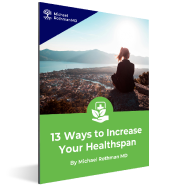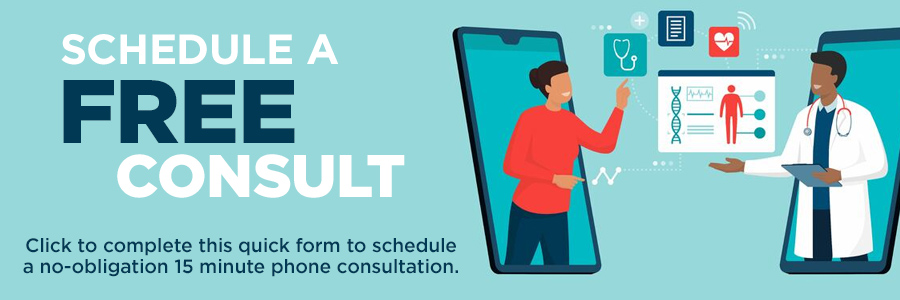While mainstream health professionals such as doctors, nutritionists, and dietitians recommend eating several small meals throughout the day, scientific studies reveal that limiting yourself to eating two or three large meals is the key to healthy living and maintaining a healthy weight. As there is no science to prove that eating multiple small meals or snacks throughout the day “boosts your metabolism” it’s truly a mystery as to why the medical community continues to recommend these unfounded, unhealthy diets. In fact, by the end of this blog, I hope you consider eating less frequently and continue to educate yourself about the metabolic benefits of intermittent fasting.
Why would I want to eat fewer meals?
Each time you eat, your blood sugar increases. As you’re digesting your meal, your pancreas releases insulin into your bloodstream to lower your blood sugar. This insulin release causes your blood sugar to be reduced, however if your sugar drops too low (a condition known as reactive hypoglycemia) you will quickly be hungry again. Consequently, because you’re hungry, you eat again, which then stimulates another insulin release, and again you are hungry. This cyclical pattern of consuming frequent small meals can eventually cause your insulin levels to rise to dangerously high levels and is very detrimental to your health. Excessive levels of insulin in your bloodstream contribute to inflammation throughout your body, which can cause a myriad of health issues including diabetes, heart disease, high blood pressure, cancer and other chronic problems.
What is Intermittent Fasting and why would I want to do it?
Firstly, intermittent fasting is not a diet, but more so a scheduled program of eating. It’s a way to plan your meals to keep your blood sugar stable while minimizing insulin release and insulin levels. I’d like to emphasize that while this pattern of eating focuses on when you eat, it will not work unless you correctly choose what you eat. Therefore, if you do not eliminate fast food meals, fried foods, low fat foods, excessive carbohydrates and high sugary snacks from your diet, this method will not be effective. Generally, intermittent fasting can be a simple eating lifestyle which has a large positive impact on your metabolism and in turn help you improve your health and lose weight.
How does Intermittent Fasting Work?
Essentially, your body is in a “fed state” immediately after you eat a meal and you are digesting and absorbing the nutrients. As a general rule of thumb, this “fed state” begins when you start eating and ends about three to five hours later after your food is digested. As we’ve mentioned, every time you eat, your blood sugar increases and you release insulin. When you are in a “fed state”, it is nearly impossible for you to burn fat, because under the influence of insulin you can only store fat. About five to eight hours after your last meal you enter a “fasted state”. In this state, your insulin levels are at their lowest, and now the only energy source available is your own body fat. So the concept behind intermittent fasting is to increase the amount of time that you are in a “fasted state”. In a normal eating pattern of breakfast, lunch and dinner or especially in an ill-advised program where you eat several small meals a day, it is virtually impossible to reach a “fasted state”. By reducing the frequency of your meals, you can put your body in a state of burning fat, minimize your insulin levels and dramatically improve your overall health.
What is an Example of an Intermittent Fasting Schedule?
Your life is always moving and changing. And so can this intermittent fasting program. This is about making it work for your lifestyle in hopes that you can realistically stick with the program. As an example, I recently had a patient who really wanted to try Intermittent Fasting to help her lose weight. However, as her spouse was not participating in the program, she needed to tailor her eating schedule to accommodate both their agendas. We personalized her schedule to eat her first meal at 1pm and a second meal at 8pm so she could still have dinner with her spouse every night and go out with friends on the weekend. This still gives her roughly 5-8 hours of fat burning in the fasted state.
What should I be eating?
You must avoid eating too many low fat, high carbohydrate meals. If you eat plenty of healthy fats (contained in foods like organic meat, fish, cheese and eggs) at each meal, you will not get hungry between meals. You must understand that your metabolism is like a fire. You can throw small twigs onto the fire, but as quickly as you throw it on, these twigs burn up. But if you put on a nice big log on your metabolic fire, it will burn very slowly over several hours. Think of carbohydrates like the small twigs. Carbohydrates burn very rapidly especially when eaten without any other type of food. Protein and fat are the metabolic logs of your diet. These healthy and nutritious fats are slow burning fuels necessary if you want to incorporate an intermittent fasting program.
Are you interested in intermittent fasting? Come in for a consultation with Dr. Rothman by calling, 732-268-7663 and establish a better nutritional plan guaranteed to help you stabilize your blood sugars, reduce your insulin levels, improve your health, and even help you lose weight.












